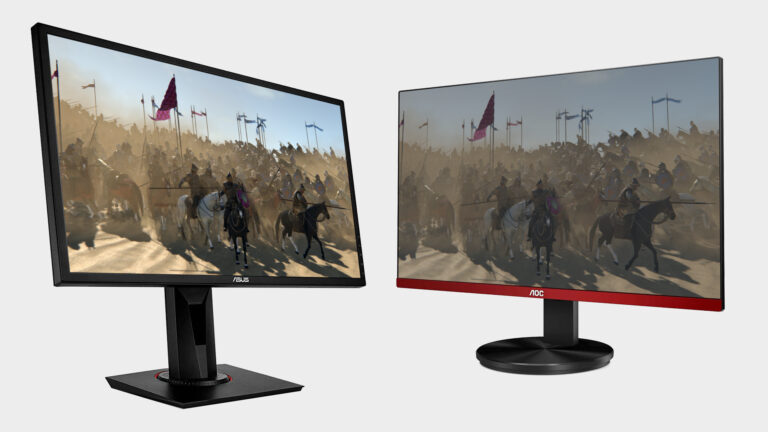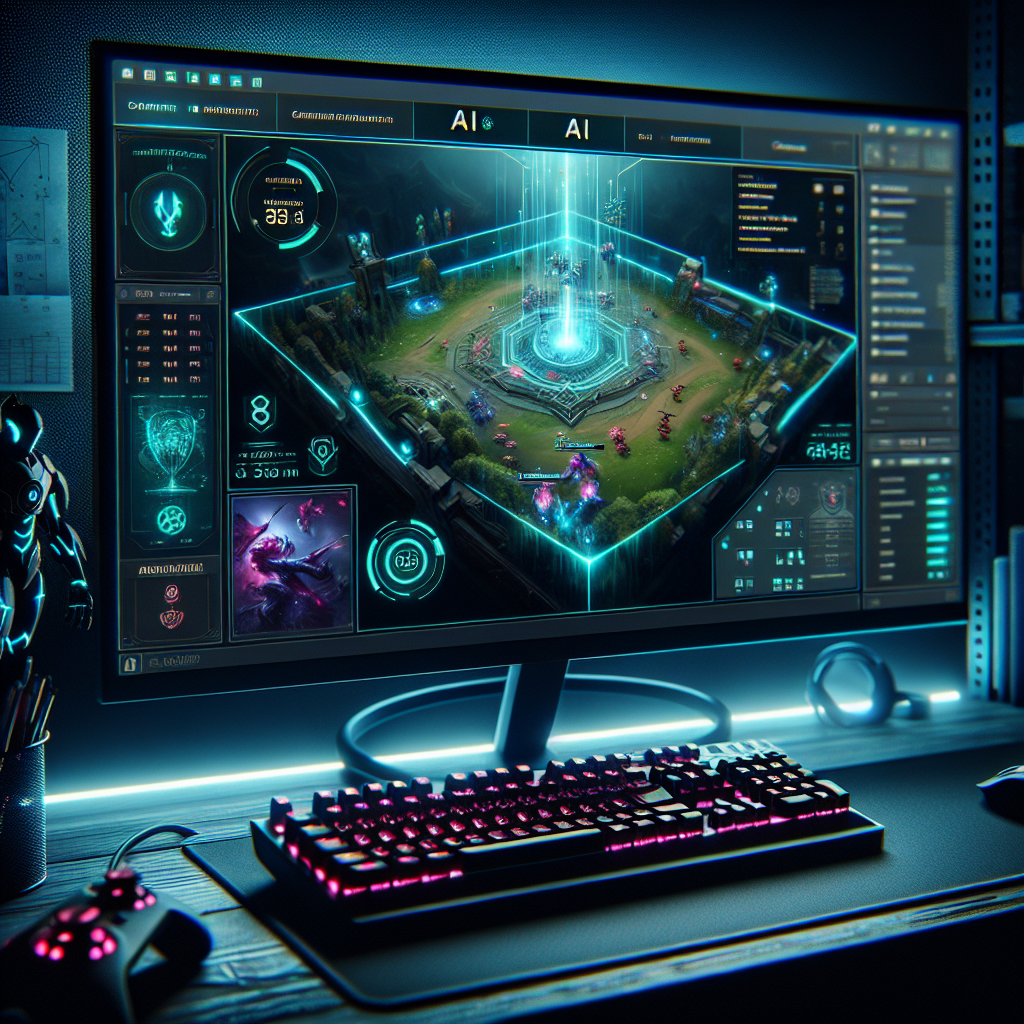AI Integration at CES 2024: Fair Play in Question with MSI’s New Monitor
The Consumer Electronics Show (CES) of 2024 has been abuzz with the latest advancements in artificial intelligence (AI), with hardware manufacturers eager to showcase their innovative AI integrations. A standout among these is MSI’s demonstration of its new AI-powered feature within the MEG 321URX QD-OLED monitor, designed to assist players in the popular game League of Legends. This feature, known as SkySight, has the ability to detect incoming enemies and alert players by displaying an onscreen icon, raising eyebrows over the fairness of such an assistive tool in competitive play.

AI-Powered Gaming Monitor Features
The MSI MEG 321URX QD-OLED monitor is equipped with an onboard AI accelerator that enhances gaming experiences by providing real-time data analysis. This sophisticated AI system is capable of analyzing the mini-map in League of Legends to detect and signal the approach of adversaries, giving players a strategic edge. Additionally, it includes a health bar tracking feature that syncs with a physical RGB light strip on the monitor, offering a visual representation of the player’s health status.
| Feature | Description |
|---|---|
| Enemy Detection | AI analyzes the mini-map to anticipate and reveal enemy positions with an onscreen icon. |
| Health Bar Tracking | Monitors player’s health bar and displays it on an RGB light strip for easy viewing. |
MSI’s innovation doesn’t stop there; the company is set to release an application that allows users to train the AI to recognize and respond to various in-game elements, making it adaptable to a wide range of games. The training process is handled by the user’s PC, but once configured, the monitor itself processes the visual data, thereby freeing up valuable computing resources for the game.
AI Integration in Gaming Monitors
The MSI MEG 321URX QD-OLED monitor boasts a suite of high-end specifications that cater to the demands of competitive gaming. Here’s a rundown of its impressive technical features:
- Screen Size: 32-inch
- Resolution: 4K QD-OLED panel
- Contrast Ratio: 15000000:1
- Refresh Rate: 240Hz
- Response Time: 0.03 ms
- VESA Clear MR Certification: 13000
Implications for Competitive Gaming
The introduction of the MSI MEG 321URX QD-OLED monitor with its AI game-tracking features has sparked a debate within the competitive gaming and esports communities. The monitor’s ability to process AI tasks independently of the gaming machine presents a unique challenge for anti-cheat software, which typically does not monitor external devices for unfair advantages.
This technological leap could potentially create an uneven playing field, as players with access to such AI assistance might gain an undetectable edge over their opponents. The fact that the AI processing occurs within the monitor itself means that it could go unnoticed by both other players and officials unless they are physically present to observe the monitor’s output.
While esports leagues often monitor players through live webcam feeds, there is a concern that subtle adjustments to the monitor’s settings could allow its advantages to slip past undetected. This raises important questions about the integrity of online matches and whether current regulations and monitoring techniques are sufficient to address such sophisticated technology.
Broader Implications of AI in Gaming
The advent of AI in gaming, as exemplified by the MSI MEG 321URX QD-OLED monitor, extends beyond the realm of competitive play. For non-competitive gamers, especially those with visual-perception issues or limited vision, AI features like enemy detection and health bar tracking can significantly enhance the gaming experience, making it more accessible and enjoyable.
However, the integration of such AI technology in competitive gaming raises important ethical considerations. Esports governing bodies will likely need to confront the challenges posed by these advancements. The potential for AI to provide an unfair advantage may prompt these organizations to develop new regulations and methods to ensure a level playing field for all participants.
As the gaming industry continues to evolve with AI, it will be crucial to balance innovation with fairness, ensuring that all players can compete on equal terms, regardless of the technology at their disposal.

